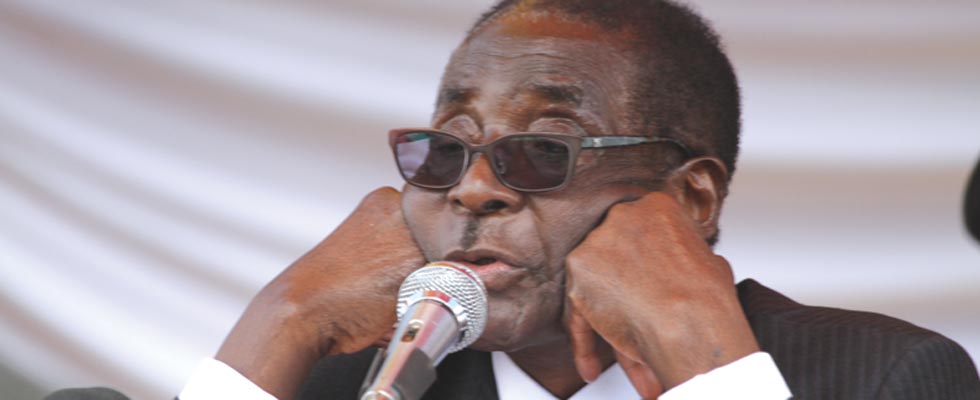
WESTERN countries must carry out an empirical evaluation of the effects of the sanctions they imposed on Zimbabwe, before any consideration to continue or drop them, a new report has said. BY PATRICE MAKOVA
The post-election edition of the Zimbabwe Transition Barometer, to be published this week, says this would assist in avoiding unintended consequences and limit the issue of sanctions being used as a political propaganda tool.
Zanu PF claims sanctions have cost the country US$42 billion, but Western countries insists the restrictive measures were only targeted at individuals.
The Crisis in Zimbabwe Coalition (CiZC) — produced report encourages the incoming Zanu PF government to re-constitute a re-engagement cabinet committee, to assist in alleviating major humanitarian challenges that may arise out of withdrawal of international support.
“The positions to be taken by Western countries going forward are also going to be critical, especially with regards to developmental support for the new government,” says the CiZC report. “Should those positions mean an immediate halting of developmental support, then that will affect the socio-economy of the country, given the current levels of support especially from the EU bloc.”
But the report says there was a likelihood that both the Zanu PF government and Western countries may begin to exploit opportunities for re-engagement. It also says the West must continue to support reforms in Zimbabwe, as the outcome of the July 31 election killed political competition after Zanu PF achieved a two thirds majority in Parliament.
“In their decision for funding support, Western countries must separate the politics from the humanitarian needs of the country,” reads the report.
It says President Robert Muga-be’s endorsement by African leaders seems to have drowned Western objections to the elections.
- Chamisa under fire over US$120K donation
- Mavhunga puts DeMbare into Chibuku quarterfinals
- Pension funds bet on Cabora Bassa oilfields
- Councils defy govt fire tender directive
Keep Reading
The barometer says Mugabe will try to seek legitimacy through committing to advance the democratic gains and economic stability made during the transition.
Although Zimbabwe failed to attain democratic transition, says the report, there was no likelihood of a return to closed authoritarian practices reminiscent of the pre-inclusive government era.
“The democratic gains made during the transition will co-exist with some old authoritarian practices, and the shifts will squarely depend on the wave of struggle for democratisation,” it further reads. “Depending on the tenacity of forces pushing for democratisation, a break-through will be found over time. After all, five- year transitional processes rarely solve all the problems and may serve as a foundational school of democracy.”
The barometre’s researcher and Oxford University lecturer, Phillan Zamchiya said in addition, the subtle methods used by Zanu PF to manipulate the election could easily be replicated in the region with the danger of reversing the democratic gains made to date.
He said the consequences of the election were regional in nature.
“The July 31 election means that Sadc went one step ahead and two steps back,” said Zamchiya. “However, the real trajectory will depend on what local, regional and international actors do or not do in the face of an apparent slow death of democracy in Zimbabwe with huge implications in the region.”
The Oxford University lecturer said civil society organisations (CSOs) must quickly adapt to the new political reality in Zimbabwe and attempt to wrestle the partisanship of State institutions and mobilise citizens to participate in processes as well as hold these institutions accountable.
‘JULY 31 POLL KILLED POLITICAL COMPETITION’
Phillan Zamchiya said the 2013 election results “killed” political competition, political participation and pose a threat to the constitution and constitutionalism.
“In essence, Zimbabwe is back to the pre-2000 era where politics is dominated by the big-man-democracy,” he said. “The situation can be worse given that the big-man [Mugabe] is now well-oiled with diamonds and other resources to refine clientelism and patronage that will undermine key political and economic institutions of government.”











